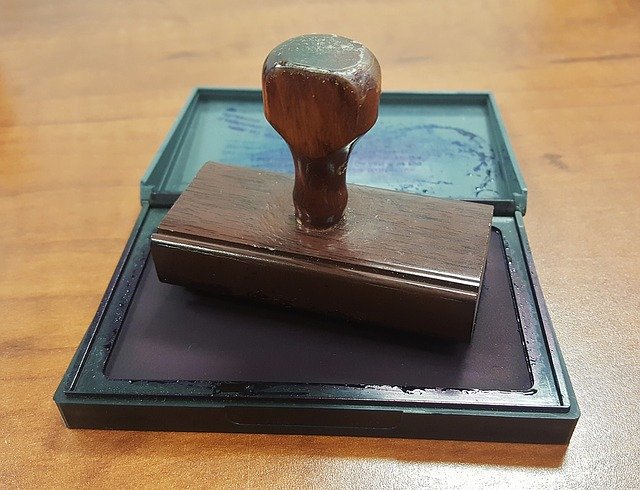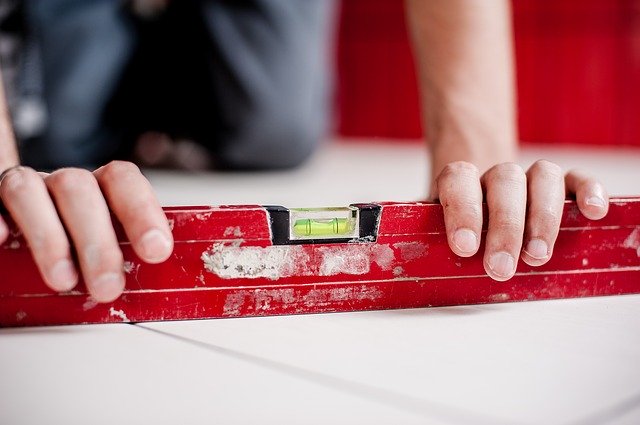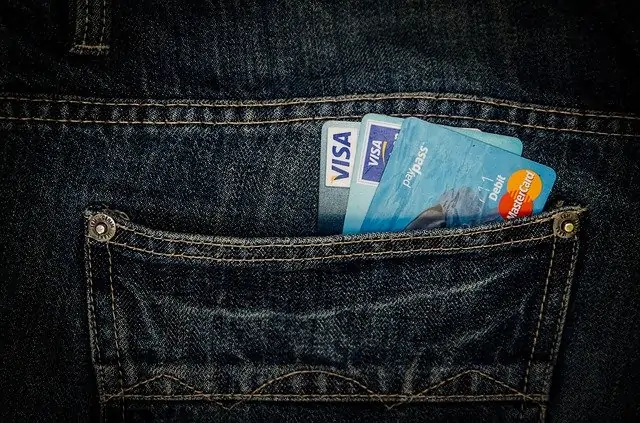This post contains affiliate links. It means that if you click on the links and make a purchase, we will receive a small commission at no additional cost to you. This allows our blog to continue providing you with free information. We only include links and products that we truly believe in. You can read the full disclosure here.
Buying a house can be a good investment in Germany, especially if you are living in Germany for the long term. In this article, you will find everything you need to know when buying a house in Germany, including the purchase procedure, the costs, and other tips, etc.
Moving to Germany or new in Germany? Check out our Resources Page for all the help you need!
Table of Contents
ToggleSelf-living or investment property?
If you want to buy an investment property in Germany, make sure to check out this post as well: Real Estate Investment Germany – 3 Ways To Invest.
If you want to buy your own home, keep reading this article to learn all you need to know about buying a house in Germany.
Properties in Germany
In the big cities of Germany, most people are living in apartments. Houses are more common in suburban areas. You may find some houses in big cities, but they are probably very expensive. German people tend to buy their properties for life. That’s why it is important to look for properties in good areas with good infrastructure like public transportation, schools, shops, job opportunities, etc.
As a foreigner, you can also choose to buy your own house instead of renting one in Germany. In fact, buying can be a good idea instead of renting. If you plan to buy a house in Germany, you should make yourself familiar with the purchase process and know what you should pay attention to.
Read also: Loan in Germany – How to Get a Personal Loan (+ Best Offers)
Why buying a house in Germany?
In Hong Kong where I am from, owning a property is a dream for many. Many people see purchasing real estate as one of the best investments. In fact, we do not like to rent because we think that renting a property means helping the property owner to pay his mortgage. Why don’t we use the money to pay our own mortgages instead?
In Germany, the mentality is a bit different. Renting is still very popular. I know many local people who rent their homes even though they can afford to buy their own house in Germany. Many of them are just comfortable with renting, and they are paying such a low rent because they have been renting the same home for a long time.
Besides, in my opinion, many German people do not like to take risks. Taking a big loan in Germany to buy a house is considered risky for them.
In fact, the homeownership ratio in Germany is 46.7% in 2022. It is one of the lowest among the European countries.
For me personally, I like to put money in the real estate market if I can. (Chinese people always like to buy properties.) Below are some advantages about buying a house in Germany:
Read also: 42 Moving Tips – Moving Locally or Internationally

Stability
When you are renting a flat in Germany with low rent at the moment, you never know what is going to happen. I know people who have lived in their rented flat for many years. At some point in time, their landlord wanted to get back the flat so that he could move in himself.
They had been paying very low rent for years as the landlord had not increased the rent much. They could never find a flat with such low rent anymore in the market once they moved out.
When you have your own flat, it is more stable and secure. At least you do not have to move out of your flat unwillingly. Besides, you also don’t need to worry about the rising rent over time.
Read also: The Best Investment to Profit From Inflation in Germany
You have more control
When you own your house, you have much more control over how you want your house to be. For example, you can make structural changes like making an extra room; you can have pets as you want; you can decide what kind of floor or heating you want, etc.
In our case, we built our house from scratch. So, we picked our floor tiles, we decided on an open kitchen, we built extra doors in front of the stairs as we have small kids and cats, we made a spacious bathroom…Basically, we tailor-made our house to fit our needs.
Read also: Best Online Broker Germany – Top 5 Comparison
Good and stable investment
Unlike other investments like stocks, the price of the properties does not fluctuate as much relatively. For self-living property, you can sell it without paying the 25% capital gain tax. If you sell your investment property after you own it for 10 years, you also do not have to pay the capital gain tax. This makes buying a house in Germany an attractive long term investment.
To give you an example, our neighbors rented their house for around 1,500 Euro per month. For our house, we pay 1,500 Euro monthly for our mortgage. In my opinion, it makes so much more sense to own our house and pay this 1,500 Euro monthly for our mortgage, rather than paying the same amount monthly as rent.
It can also be a good investment to own buy-to-let property. When you own the property for more than 10 years, you can benefit from the capital gain if the property price increases. There can also be tax advantages. Besides, rent has increased a lot in recent years, especially in big cities. This makes it more attractive to invest in a buy-to-let property.
Read also: Current real estate investment offers in Germany
Foreigners can also buy a house in Germany
There is no restriction in Germany for foreigners who want to buy a house. As a foreigner, you can buy a self-occupied house, or you can also buy a house for investment purposes in Germany.
So, if you are staying in Germany for a while, it makes sense to buy your own house. If you decide to leave Germany later, you can always rent out your property. It means that you can still benefit from your property investment even when you are not in Germany anymore.
A friend of mine is actually doing this. She and her family lived in Germany for many years already. Last year, she decided to move back to her home town in Finland. She bought a flat in Berlin and has rented it out for a while. After she moved back to Finland, she continued to own her flat in Berlin. There was not so much work involved as she had tenants who lived in her flat for the long term.
As a foreigner, you don’t even need to be in Germany to buy a house. The only barrier is your ability to get a mortgage.
Read also: Other Ways to Invest In Germany To Make Money
Risk of buying a house in Germany
Even though there are many advantages of having your own house, investment comes with risks.
Cannot cashout quickly
For many people, buying a house in Germany is a huge investment. Getting a mortgage means that you will be in debt in the next 30 years or so. Unlike stocks or other investments, you may not be able to sell your house quickly if you need money. There is also no guarantee that your house price will rise in the future.
High initial capital
To get a good mortgage deal, it is better to pay at least 20% of the house price as a down payment. Besides the down payment, there are also many other fees such as notary or real estate agent commission. Without a big sum of money at the beginning, many people are not able to buy their own house.
Maintenance costs
When you rent a property, your landlord takes care of the repairs and maintenance. If you have your own property, you are required to deal with these costs. There are many ongoing costs associated with your property. For example, the house management fees.
Disclaimer: Please be aware that this article is intended to provide you some guidelines about buying a house in Germany. It is not an investment recommendation. Besides, this blog is not qualified to give you any professional financial advisory service according to German law. If you need more details and specific advice on your personal situation, we would highly recommend you to consult a mortgage adviser, a tax adviser, or an estate agent.
Best way to transfer money when buying a house in Germany
If you need to transfer money internationally to buy your house in Germany, the worst you can do will be to do a bank transfer.
I used to do bank transfers in the first few years after I moved to Germany, until I heard about the services from CurrencyFair. I would have saved so much money if I knew it before!
I used to pay more than 30 EUR fee to transfer money to Hong Kong with banks. With CurrencyFair, the fee is only 3 EUR no matter how much I exchange. The exchange rate it uses is also much cheaper than the one used by the bank. Besides, I can also set a higher exchange rate and the transfer will only take place once this rate is reached.
By the way, Currencyfair is also offering 10 free transfers to our readers at the moment if you want to try it out for free.
Get tax advice before buying a house in Germany
If you live in Germany
I would highly recommend you to get professional advice from a tax adviser to fully understand every aspect before taking your loans. You can use Yourxpert to get a free online initial assessment from a tax adviser.
If you do not live in Germany
You still need to file your tax return to the German tax office when you own an investment property! It can be challenging for non-residents to do tax filing by themselves, especially when all the formal documents are only in German.
For those who don’t live in Germany or moved out of Germany already, the best is to use the tax filing service from Property Tax International. They can help to file your property tax in Germany so that you don’t have to deal with the German bureaucracy. Besides, they speak English and can give you tax advice regarding your property in Germany.
Read also:
What are the procedures when buying a house in Germany?
It can take quite a long time for property hunting in Germany. Once you find your property, it can take a month or so to finish the deal. In general, you can expect the below procedures when buying a house in Germany.
Procedures when buying a house in Germany
1) Know your finance
If you are thinking about buying your own house in Germany, the first step is to understand your finance. You should investigate into mortgages and understand how much you can borrow in principle. This gives you an idea of what kind of properties you can afford before you even start searching.
No matter if you want to buy a house in Germany for yourself or an investment property, the easiest way is to use this free online mortgage calculator. Just enter the house price, your down payment amount, and some other basic info. You can then see the different mortgage options in minutes and consult with a financial adviser there about each option.
2) Property hunting
Once you know how much you can afford, you can start searching for your property. You can either search online or use an estate agent.
3) Agree with the seller regarding the price and terms
Once you find your property, you should agree with the seller on the price and terms. The notary can then draw up a sale contract based on these terms later.
4) Finalize your mortgage
Now you have all the details regarding the price of the property. You can go back to the banks and get some official offers from them. Compare your offers. Pick the best one and finalize your mortgage.
5) Sign your contract
When you have your mortgage, you can now sign the contract with the seller. The contract needs to be signed at the notary. Once the contract is signed, the notary will register the sale in the land register.
6) Pay the property sales tax
Now the property is officially transferred to your ownership. You will need to pay the property sales tax four weeks later.
Tips: Do you know that your legal insurance in Germany can pay for a lawyer to review your purchase contract? With legal insurance, you will also have legal protection in case the seller wants to increase the price after signing the contract. Or if you want to reverse your purchase contract due to hidden defects in the property. Check this out: Legal Insurance Germany – Expat Guide (+ 3 Best Offers)
Before buying a house in Germany, consider making a will first. I would have saved a few thousand Euros if I had known this before: Making a Will in Germany – Why I Did It Already in My 30s
What is the role of the notary?
The notary is responsible for checking the land register to make sure the property you have chosen can be sold, and if there is any restriction on its use. For example, there should not be any outstanding property taxes owed by the seller.
You can also choose to transfer money to the notary’s account (Notar-Anderkonto) so that the seller will only get the money once the notary has checked that everything is okay.
Once everything is checked, the notary will enter the property in the land register. The change of ownership can only happen after this entry has been made.
Please note that the notary only needs to make sure all paperwork is done correctly. It is not his responsibility to check the property physically or to check your financial situation. You should make sure that you have a mortgage offer already before signing the contract at the notary.

What can you expect at the notary appointment?
When buying a house in Germany, you will need to sign the contract with the presence of a notary. During the meeting with the notary, the notary will read out your contract at a very fast speed. He needs to make sure that every party understands the contract fully.
The first time when I was at the notary appointment, I was shocked at how fast the notary can read out the contract. He spoke so fast that I could hardly hear any word and it still took more than one hour for him to finish reading. And obviously, I couldn’t understand what he said, especially when the contract was written in formal German.
Fortunately, my husband is German and he had reviewed the contract already beforehand. So, I was required to sign a proxy to allow my husband to sign the contract for me. That was because the notary had to make sure I understood the contract if I were to sign it.
Therefore, I would highly recommend you to review the contract before attending to the notary meeting. In case of any questions, you could already clarify them beforehand so that it didn’t need to take too long at the notary.
If your German is insufficient, you can sign a proxy just like me in case you buy your house together with your partner who understands sufficient German.
Otherwise, it is highly recommended to bring a translator with you during the notary meeting. Buying a house in Germany is a big investment and you should fully understand what you are signing.
Read also: 20 Ideas to Make Money from Home – Anyone Can Do
What is stated in a contract?
A contract should include the property details; the names and addresses of all the parties involved; the purchase price and the payment conditions.
Besides, the contract should also state what happens in case a party fails to comply with the contract terms. It is also important to include an exit clause in the contract in case you are unable to arrange a mortgage.

Cost of buying a house in Germany
The cost of buying a house in Germany varies greatly depending on the regions. Even though the house prices have decreased a bit after 2022, they are still much higher compared to 10 years ago, especially in big cities. Not only the house prices, but the rent has also increased significantly.
To give you an idea, have a look at the below chart from Statista. It shows the purchase price per square meter in some major cities in Germany in 2023.
| City | Euro per m² |
| Munich | 10,936 |
| Stuttgart | 7,748 |
| Frankfurt | 7,627 |
| Freiburg im Breisgau | 7,284 |
| Berlin | 7,219 |
| Hamburg | 7,132 |
| Potsdam | 7,080 |
| Düsseldorf | 7,065 |
| Rosenheim | 6,859 |
| Heidelberg | 6,718 |
If you are interested in the actual purchase price now for your region, you can check out this website.
The rapid price increase over the years in major cities is mainly caused by high demand. Many people want to move to big cities in Germany because of job opportunities or good quality of life. The supply of the flats fails to keep up with the demand, causing a rapid increase in price.
Read also:
- Cost of living in Germany – How to save money?
- How to Save Money During a Crisis – 8 Best Tips to Save and Earn
Even if you want to buy a house in Germany, it may be difficult to get one
The crazy thing here in Germany is that even if you want to buy a house, it may not be easy to get one. In our case, it took us almost two years to find our house. We wanted to buy a completely new house in Germany and had been searching for a while.
Our experience was that we had to be extremely fast to get one. There were times that we looked at a house. We told the agent that we needed a few days to think about it. A few days later, when we called the agent again, the house was already sold.
In the end, we saw an advertisement for building a new house. Once the advertisement was up online, we directly called and reserved our house, without even visiting the place. That was how we got our house.
In our case, our house was not built yet when we reserved it. So, it was only important to know where the house was located. When we were happy with the city and the location, we made our decision very quickly so that we could reserve the house.
Size of the properties in Germany
Another thing you should know is that the average size of the properties in Germany is relatively small compared to those in the U.S. The average size of a flat in Germany is around 92 square meter, and that of a house is around 135 square meter. That is because the population density is much higher in Germany compared to the U.S.
However, if I compare the size of the properties in Germany to those in my hometown Hong Kong, then the size in Germany is really huge for me.
Read also: Insurance in Germany – Which one do you need?
What cost should you expect when buying a house in Germany?
On top of the purchase price, you should expect the below cost when buying a house in Germany:
| Cost | % of Purchase Price | Notes |
|
Notary’s and Registration fees |
1.5-2.5% |
Interpreter’s cost is on top if you need one |
| Estate agent’s fee |
Up to 7%, plus 19% VAT |
Depending on who hires the agent and how the cost is split between the buyer and seller |
|
Property transfer tax (Grunderwerbssteuer) |
3.5-6.5% |
Depending on your region |
So, all in all, you should expect to pay around 5-16% on top of the purchase price of your property. These additional closing fees are normally not financed via a mortgage. You should make sure that you have money available to cover these costs.
Below are some details of each cost you need to consider when buying a house in Germany.
1. Your mortgage cost
Most people will need a mortgage (Hypothek) when buying a house in Germany. Most major banks in Germany like Postbank, Commerzbank, and DeutscheBank offer mortgages and have mortgage advisers at their banks.
Instead of applying directly on the banks’ websites, it is better to use a free online mortgage calculator. The calculator will screen through offers from different banks and pick the best one for you.
It is important to take a mortgage that is affordable for you. In case you fail to pay back, your property may be repossessed and it can be difficult for you to borrow money in the future.
Below are some of the important elements in a mortgage:
Down payment
In Germany, it is recommended to pay at least 20% of your house price as a down payment. You may have to pay more if the bank considers that you have a higher risk, e.g. if you are an expat.
However, it is also possible to pay less than that or even get a 100% loan under certain circumstances. For example, in our case, we paid 10% as a down payment for our house.
As mentioned before, if you need to transfer money from your home country to Germany for the down payment, it is better to use money transfer services like Currencyfair which is much cheaper than using regular bank transfer.
Interest rate
The interest rate of your mortgage will depend on the amount of your down payment and also the duration of your mortgage. In general, the interest rate at the moment is very low. Many banks forecast that the interest rate will be stable in the long term.
As mentioned before, you can also use a free online mortgage calculator to quickly estimate how much interest rate you can get.
Mortgage duration
The duration of your mortgage depends on the amount of your loan and the annual repayment you are going to make. A mortgage period usually lasts for 25 or 30 years.
In many cases, the interest rate is fixed for the first 10 years. Afterward, you have to make a new loan contract based on the circumstances by then.
Read also: Having a Baby in Germany – From Pregnancy to Postnatal Care
Additional annual repayment (Sondertilgung)
In many loan contracts, you may have the option to pay an additional annual repayment of around 5 – 10% of your original mortgage amount. By doing so, you can reduce the amount of your total interest payment. This is because the more annual repayment you made, the less interest you will have to pay.

2. Estate agent’s fee for buying a house in Germany
If there is an estate agent (Immobilienmakler) involved, you may have to pay part of the estate agent’s fee. The cost can be up to 7%, depending on how the commission is split between the buyer and the seller.
In many cases, the costs are split 50:50 between the buyer and the seller. In some cases, the seller is paying the full costs if he hires the estate agent.
Once you agree on the property to buy, the agent will arrange a notary contract between you and the seller. You may have to pay the agent’s fee after the contract has been completed.
If you want to hire an estate agent, it is important not to sign an exclusivity contract with a single agent. Instead, you should get and compare offers from different agents.
If you buy from one agent a house that another agent has already offered you before, you should let another agent know immediately to avoid paying double agent’s fee.
3. Property sales tax (Grunderwerbsteuer)
When you buy a house in Germany, you will have to pay the property sales tax which is around 3.5 to 6.5% of your property’s price. This tax is billed by the federal states (Bundesland) and the cost is different depending on the states.
Read also: Childcare in Germany – Kita and Other Options
4. Notary’s and Registration fees
Once you find your dream property and agree with the seller, you will need to sign a contract. The contract needs to be signed with the presence of a notary.
The notary is responsible for preparing the contract, hosting the signing ceremony, and entering the sales of the property in the land register. It will cost around 1.5-2.5% of the property purchase price to pay for the notary’s and registration fee.
The notary also has to make sure that you understand the German purchase contract before signing it. So, if your German is not sufficient, you may want to bring an interpreter with you. In that case, you will need to take into account the interpreter’s fee as well.
5. Other additional costs
You may want to evaluate the value of your property to make sure the purchase price is reasonable. There are different ways to do a property assessment and it can cost from a few hundred to more than a thousand Euros.
You may also need to pay for house repair costs if you purchase an old property. One point to note is that for investment properties, your related repairs and maintenance expenses are tax-deductible against your rental income. For more information about buy-to-let properties, check this out: Real Estate Investment Germany – How I became a landlord
As mentioned before, you can use Yourxpert to get a free online initial assessment from a tax adviser. Or get tax advice from Property Tax International if you are a non-resident. It is important to understand all the tax aspects when buying a house in Germany.
Factors that may affect your application for a mortgage
If you want to get a loan from a German bank to finance your house, several factors may determine your success in getting a loan.
Age
If you are older and closer to retirement, you are considered riskier by the banks. Therefore, most of the time you face higher down payment rates compared to a younger person.
Your employment status
Do you have a limited work contract or are you still in the probation period? Most banks will only give you a mortgage if you have an unlimited employment contract. (They will check your payslips in the last 3 months and your last December payslip for any Christmas salary or bonuses.) Therefore, you will need to wait until you pass the probation period to apply for a mortgage.
How much do you earn?
The higher is your income, the less risky it is for the banks. Be prepared to show evidence of your savings and payslips. If you are self-employed, the banks will also like to see your tax and bookkeeping documents.
In some cases, you may need to have a life insurance policy to get a mortgage. This is often the case if the mortgage amount is high and if you are the only earner in the family. In case you die, your life insurance in Germany can help to repay your mortgage.
Anyway, it is highly recommended to have life insurance if your family is financially dependent on you (so that they will not be forced to move out of their own home in case you die). For more details, check here: Best Life insurance Germany – Top 4 Comparison
If you rely on your income to pay your mortgage, check this out as well: Occupational Disability Insurance in Germany – 4 Best Offers
In which currency do you earn?
You need to earn Euros to get a bank loan in Germany. Otherwise, the customer protection laws will force the banks to exchange the mortgage into the currency that you earn. And almost no banks will give you a mortgage because of that.
Your residency status
The best is to have a permanent residence permit (Niederlassungserlaubnis). German banks will usually also accept an unlimited residence permit. However, if you only have a Blue card, most German banks will normally not give you a mortgage. An exception is that if you can pay more than 25% of the house price as a down payment.
As mentioned before, you will need to pay other costs like the notary’s fee and property transfer tax on top of the house price. It means that if you have a Blue card only, you will need to have a substantial amount of money on hand to buy a house.
Your assets and debts
The more assets you have, the more secure it is for the banks. It is because you can use these assets to secure your loan. On the other hand, the banks will not like it if you have a lot of other debts.
Note that your collaterals need to be in Germany. German banks will not accept collaterals abroad as they have no expertise outside Germany.
Read also: Opening a Bank Account in Germany – Compare English Banking Options

Different types of loans in Germany
When I first got my offer from the bank, I was so confused. The offer consisted of many different loans and it was very complicated for me to understand. One tip is that you should keep a good SCHUFA score. A bad SCHUFA score can result in a higher mortgage interest rate for you. You can see below some common types of loans in Germany.
Fixed-rate loans
These loans consist of both capital and interest repayments. The interest is fixed in the contract. You will have to pay usually between 2 – 3% capital repayment annually.
At the beginning of the loan period, the interest portion of the installment is high. As time goes by, more capital repayment will be paid off. So, the interest portion of the installment will get lower while the portion of capital repayment will get higher.
Variable-rate loans (Flexible Darlehen)
These loans are similar to the loans above except that the interest rate is not fixed. Instead, the interest rate is adjusted every three months based on the Euro Interbank Offered Rate (Euribor), plus an adjustment of around 1%.
Building loan contract (Bausparvertrag)
In this contract, you have to pay money into a saving program for a fixed period. At the end of the period, you would have saved up a large sum of money and you could use that to pay off your mortgage.
Interest-only loans (Zinszahlungsdarlehen)
For these loans, you are required to pay interest only but no capital repayment for a fixed period. It is good for investment properties as the interest payment is tax-deductible. However, you will have to make sure you have other ways to cover the outstanding loan if you decide to take an interest-only loan.
For more details on each type of loans, check out this: Mortgage in Germany – Pros & Cons of Each Type (Plus 6 Best Tips!)

Allowance and subsidies for buying a house in Germany
You may be eligible for different allowance and subsidies provided by the government when buying a house in Germany.
KfW (Kreditanstalt für Wiederaufbau)
You may be able to get a KfW loan which has a lower rate of interest compared to the banks. KfW loans are for people who want to own their houses or make their properties more energy-efficient.
Around 50-100k Euros can be financed by these loans. Note that these loans are not for holiday homes, or for restructuring your existing mortgage.
For the requirements and details for different programs, you can refer to this website.
Wohn-Riester
Wohn-Riester is a private pension scheme where you put and save money in a saving account. And you can use this money later to buy a house in Germany or pay off your mortgage. The government supports this scheme by providing tax incentives and paying some extra amounts to your scheme.
This scheme aims to motivate people to take care of their pension actively. You can open a Wohn-Riester saving account from a regular bank in Germany. For more details about this scheme, you can refer to this website.

How to find a house to buy in Germany?
For investment properties
I personally have two investment properties in Germany. I bought these properties via my financial adviser who provided an all-inclusive service. So, I didn’t need to do any research or look for the properties myself.
Instead, my financial adviser provided all the services including property selection, location research, mortgage, tenant management, etc. For these two investment properties, I even got a rental guarantee and the rental pool service, which greatly reduced my risk as a landlord.
If you are interested, you can contact my financial adviser and mention my blog “My Life In Germany” to get a free consultation. Or read this post for more details about how I did it.
For self-living properties
In Germany, it is not common for the seller to put a “For Sales” sign in front of a house. So, you may not be able to find a house to buy in Germany just by taking a walk in the area.
You may find property offers published in the newspaper. But nowadays, it is more convenient to search for a property using an online property portal like this website.
When searching for your property, you should be careful if you see offers at cheap prices. They may be older properties and may require you to invest a lot more to renovate.
Properties in Germany can be sold privately or through an estate agent. If you see “von privat” in the advertisement, it means that no estate agent is involved. As mentioned before, there is a high demand in the German real estate market. Therefore, it is usually the buyers who try to find a property by contacting the sellers or an agent.
If you prefer to buy a house in Germany through an estate agent, you can find an agent using this website. As mentioned before, I recommend using a free online mortgage calculator as a first step before searching the house by yourself.
Read also: How to find a place to live in Germany?
How to choose a house to buy in Germany?
There are some questions you need to ask yourself before choosing a house to buy in Germany.
What type of housing?
Do you want to buy a house or a flat in Germany? Do you want to buy a new or old property? Do you want to build a house completely from scratch? If you want to buy an old property, be aware that you may need to invest some money to renovate.
Your finance
Make sure to include all the purchase costs of your property, as well as the recurring costs afterward. On top of your down payment and mortgage cost, you should also take into account all the additional costs later on like heating, water, services charges for building’s management, etc. If you are buying a new property, you will need to buy your own kitchen and furniture as well in most cases.
You should check also if there are any tax advantages or government subsidies available.
Location
Location is one of the main factors when deciding on a house to buy in Germany. Are there daycare centers or schools in the area? Is there any public transportation? Are there shops and supermarkets nearby?
Is the property currently being occupied?
In Germany, it can take a long time if you want to evict the tenants. This is because German rental contracts favor the tenants. So, it can be difficult for you to turn your property over to new tenants if the property is currently being occupied.
The neighborhood
You should walk around the neighborhood to see if you would like to live there. Are there more old or young people or families living nearby?
Don’t be afraid to talk to the people and ask if they are happy living there.
Timing
As mentioned before, it can be very competitive to buy a house in Germany, especially in big cities. You should know your preference so that once you see an available property that meets your budget and requirement, you can make your purchase decision quickly.
Investment income
If you are buying a house in Germany for investment, you should do some research on the area to see how easy it is to find tenants and how much rent you can get. You also need to plan some savings as a buffer in case you do not find your tenants immediately. Besides, make sure you understand the tax impact when renting out your property.
Read also: Filing US Tax When Living Abroad In Germany – An Overview For US Expats
Hire a surveyor (Gutachter)
Before you buy a house in Germany, it is recommended to use a surveyor to check if there are any problems with the property. Especially when you plan to own your property for the long term, it is important to be aware in case of any hidden issues in the property. You can read more info about surveyors here.

Special thanks to my friend Jibran who makes a Youtube video based on this article. Be sure to check out Jibran’s Youtube channel Desi in Wonderland as well where he shares his traveling and other living experiences in Germany.
Pin it for later:

Disclaimer
Please be aware that this article is intended to provide you some guidelines about buying a house in Germany. The information and tips in this article are based on personal experiences and thorough research.
This blog is not qualified to give you any professional financial advisory service according to German law and we do not accept any form of liability resulting from reading this article. Our blog makes no guarantee as to the accuracy or timeliness of the information in this article. If you need more details and specific advice on your personal situation, we would highly recommend you to consult a mortgage adviser, a tax adviser, or an estate agent.
Do you want to buy a house in Germany? Or do you prefer to rent? Leave a comment and share your experience below!
Moving to Germany or new in Germany? Check out our Resources Page for all the help you need!
If you found this article helpful, consider supporting this website by buying me a coffee. Every small donation helps to keep this blog alive. You can also ask me any questions here. Buy me a coffee









Very informative and interesting read.
Thanks for reading 🙂
Nice ongo.. Can you suggest of. Its better to buy an apartment in city or a house in village with a distance of 40km away from work place.. As recently we had 70%workfromhome options
It depends on the house price difference between the city and the village, and also your personal preference. Some people love living in a village, some hate it and prefer definitely to stay in the city. It also depends on the transportation system. Do you have good public transportation from the village to the city? Or do you have a car? If you plan to drive to work, you should also consider the fuel cost. Also, when you live far away from your work place, a lot of commute time will be lost. Besides, do you want to have a big living space (house, garden, etc.) or you can stand living in a small flat? How about the infrastructure in the village? Are there nursery or school, if you have kids? So, it is not simple to just answer your question as one needs to consider all the factors. For me personally, I would rather drive that 30% to work and buy a cheaper bigger house outside the city. But it is just me. You will have to decide by yourself. Hope it helps!
Hi… Thanks for your quick response… Ya regarding distance (due to corona) more companies came to a conclusion to give 70% work from home. And the flat (90sqmt) nearby costs me 4,80,000euros whereas the house with G+2 in village (180sqmt) costs 4.00.000 euros. The village has all kitas, schools, gymnasium is 15 minutes far away by bus.. There are hospitals, Rewe supermarkets etc as well..
I myself live in a village as well. For me, as long as my village has all I need (kita, school, gymnasium, public transportation, etc.), I have no issue living there. In my village, I have a big house with a garden, garage, parking space, etc. If I live in the city, it would not be possible to get a house like this with the price I paid. Maybe I would have a small flat of 30 square meter and that’s it. So, in my opinion, I would prefer to live in a village, especially if you can work from home 70% of the time. It is also because I want to have a big house, live in a quiet place, and I don’t need much night life or city life. If this sounds like you, maybe you would like to choose a house in the village as well. Just make sure that your 70% home office is stated in the contract, not that your company wants you to be in office again 100% after the Corona crisis.
I have also heard that if your kids grow up in a small village, they will be more pure as there is not so much entertainment except hanging out at their friends’ home. I don’t know about it yet as my kids are still small 🙂
One drawback I see living in a village is that in case in the future, you want to change your employer, you will have to find another employer who can offer you as well a home office contract. Otherwise, it may not make sense to change your job and this basically limit your choice a lot. If you live in the city, you can change your employer easily and no need to worry about the commute. For more differences between village and city life, you can have a look here:Living in Germany – Big City vs. Small Town
I have read somewhere that the agent’s fee will be able to be split between buyer and seller half and half in the near future. Is it acceptable to discuss/negotiate a makler’s fee or would that be offensive?
Thank you
I do not have experience of negotiating the agent’s fee personally. In my opinion, it really depends on the property. For example, in the Munich area, it is extremely difficult to find a house to buy. You will have to be extremely fast and lucky in order to get one. There is a long waiting list of people wanting to buy. And everyone I know who managed to buy a flat felt extremely lucky to find one. So, it is hard for me to imagine someone negotiating the agent’s fee in this situation. However, I have heard that it is possible to negotiate and sometime maybe a good thing to try.
Nice and elaborate. Thank you for putting this all together.
Thanks for your comment. Glad to hear that you like my article 🙂
When you purchased the home to be built. How did you negotiate the loan to be structured? Did you start paying off the loan before the home was completed? did you have to pay the fees before house was ready for occupancy?
Thank you for the informative article. We just moved to germany a couple of weeks ago and are looking to buy ASAP.
Christian,
When we bought our house, we had a finance adviser who found different bank offers for us and we chose the one we want.
Before our house was completed, we had to start paying interest. Regarding the capital repayment, we only had to started paying when our house was partially finished. I think the building process was divided into 7 milestones. When each milestone was met, we had to started paying capital repayment for that portion.
For the notary cost, tax, and other fees, we had to pay them before the house was ready.
Therefore, we had to have money on hand to cover all those costs before we were able to move in.
It is wise to look to buy as soon as possible.
We are so glad that we bought our house 3 years ago. Now we might not be able to afford the same house any more.
Hope it helps and let me know in case you have other questions!
Sindy
Super helpful content here!! Many thanks for putting all this together.
I live in the country side, in Bavaria, Germany and except 1 foreign couple, everyone I know owns a house. I wonder if the statistics you mentioned are 50% in the cities?
Renting is nice if you aren’t kicked out because the landlord wants to sell the house… or increases the rent a lot (as it happened to me a few times when I lived in Hong Kong).
Adler,
Thanks for your comment!
The 50% rate is for the whole Germany. What I notice is that foreigners are much more open to buying real estate than German people. You may be right that people living in the country side tend to buy their own home than people who live in the cities. Some explanation can be that people who live in the city are usually younger and thus more mobile. When people have a family, they may move to the country side and these people are usually more stable. Besides, price in the city is much higher. So, people may choose to buy in the country side instead.
You are right that renting is nice if you are not kicked out. Because German laws are very favorable to tenants. But you never know if you will be kicked out. If that happens, you may need to pay much more rent to rent a similar place again. Besides, landlords here can also increase the rent due to inflation. So, there are pros and cons.
Anyways, thanks for reading and leaving your insight here 🙂
Sindy